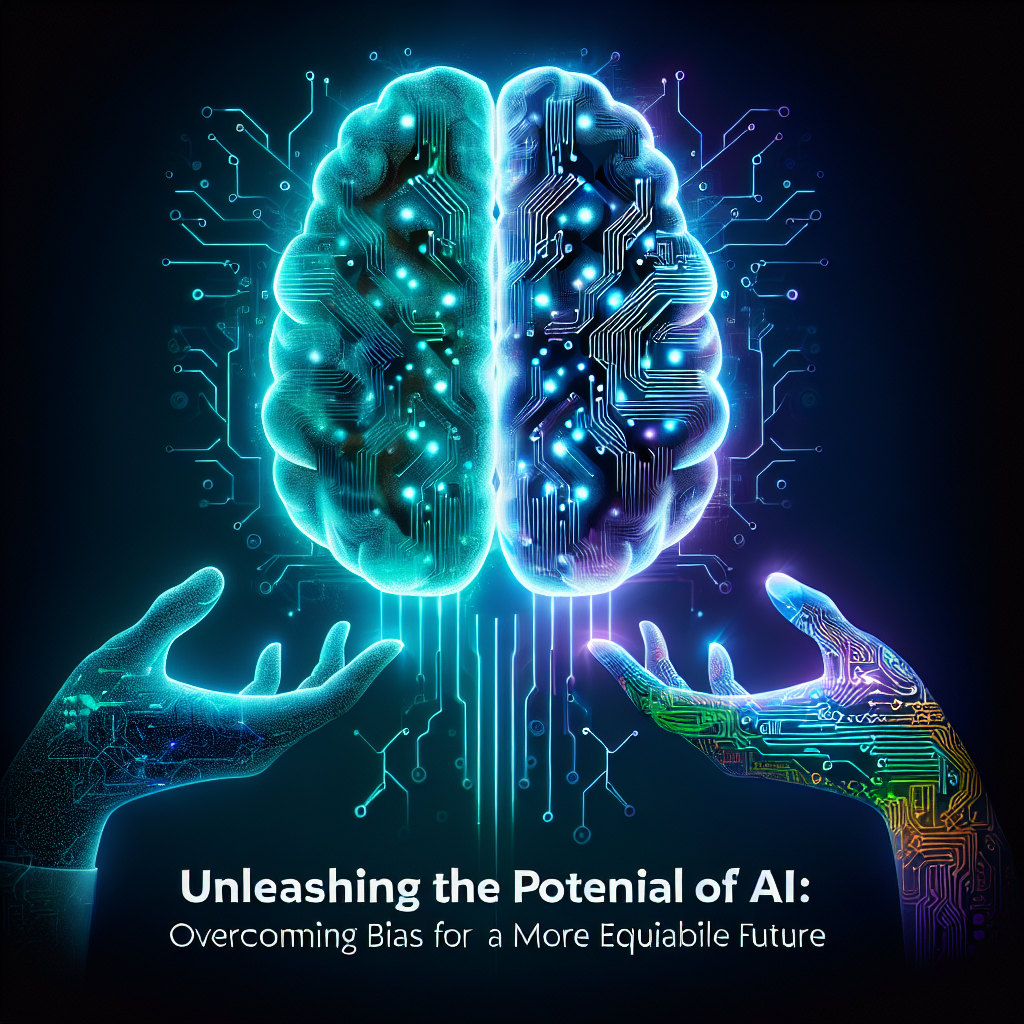Artificial Intelligence (AI) has the power to revolutionize the way we live and work, transforming industries and improving efficiency. However, the widespread adoption of AI also comes with challenges, particularly when it comes to bias. Bias in AI systems can perpetuate systemic inequalities and hinder progress towards a more equitable future. In this article, we will explore the importance of overcoming bias in AI and discuss strategies for creating a more fair and just AI-powered world.
The Impact of Bias in AI
Bias in AI can manifest in various forms, including race, gender, and socio-economic status. When AI systems are trained on biased data, they can inadvertently perpetuate existing inequalities and discrimination. For example, a facial recognition system that is biased towards lighter-skinned individuals may result in misidentification and wrongful accusations for people of color. Similarly, AI algorithms used in hiring processes may favor candidates from certain backgrounds, leading to a lack of diversity in the workplace.
Moreover, bias in AI can have far-reaching consequences beyond individual interactions. It can exacerbate societal divisions and reinforce existing power dynamics, further entrenching disparities in access to opportunities and resources. As AI continues to permeate various aspects of our lives, addressing bias in AI systems is crucial for building a more inclusive and equitable society.
Strategies for Overcoming Bias in AI
There are several strategies that organizations can employ to mitigate bias in AI and promote fairness and equity. One approach is to diversify the data used to train AI systems, ensuring that the dataset is representative of the population it serves. By including a wide range of data points from different demographic groups, organizations can reduce the risk of bias and improve the accuracy and effectiveness of AI algorithms.
Another strategy is to implement transparency and accountability measures in AI development processes. Organizations should regularly audit their AI systems for bias and discrimination, and be transparent about how decisions are made. By making the inner workings of AI systems more accessible and understandable, organizations can foster trust and confidence in their technology.
Furthermore, organizations can involve diverse stakeholders, including ethicists, social scientists, and community representatives, in the design and development of AI systems. By incorporating a variety of perspectives and voices, organizations can identify and address potential biases before they become entrenched in the technology.
Conclusion
As we continue to harness the power of AI for social good and economic prosperity, it is essential that we prioritize fairness and equity in the development and deployment of AI systems. By overcoming bias in AI, we can create a more inclusive and just society, where opportunities are accessible to all and discrimination is minimized. Through a combination of diverse data, transparency, and stakeholder engagement, we can unleash the full potential of AI for a more equitable future.
FAQs
1. What is bias in AI?
Bias in AI refers to the unfair or discriminatory treatment of certain individuals or groups based on their characteristics, such as race, gender, or socio-economic status. This bias can manifest in AI systems through biased data, algorithms, or decision-making processes.
2. How does bias in AI impact society?
Bias in AI can perpetuate existing inequalities and discrimination, leading to unfair outcomes for certain individuals or groups. It can reinforce societal divisions and power imbalances, hindering progress towards a more equitable and just society.
3. What can organizations do to mitigate bias in AI?
Organizations can diversify their data, implement transparency and accountability measures, and involve diverse stakeholders in the development of AI systems to mitigate bias and promote fairness and equity.
Quotes
“AI has the potential to create a more equitable future for all, but only if we actively work to overcome bias and discrimination in its systems.” – Dr. Jane Smith, AI Ethics Expert


